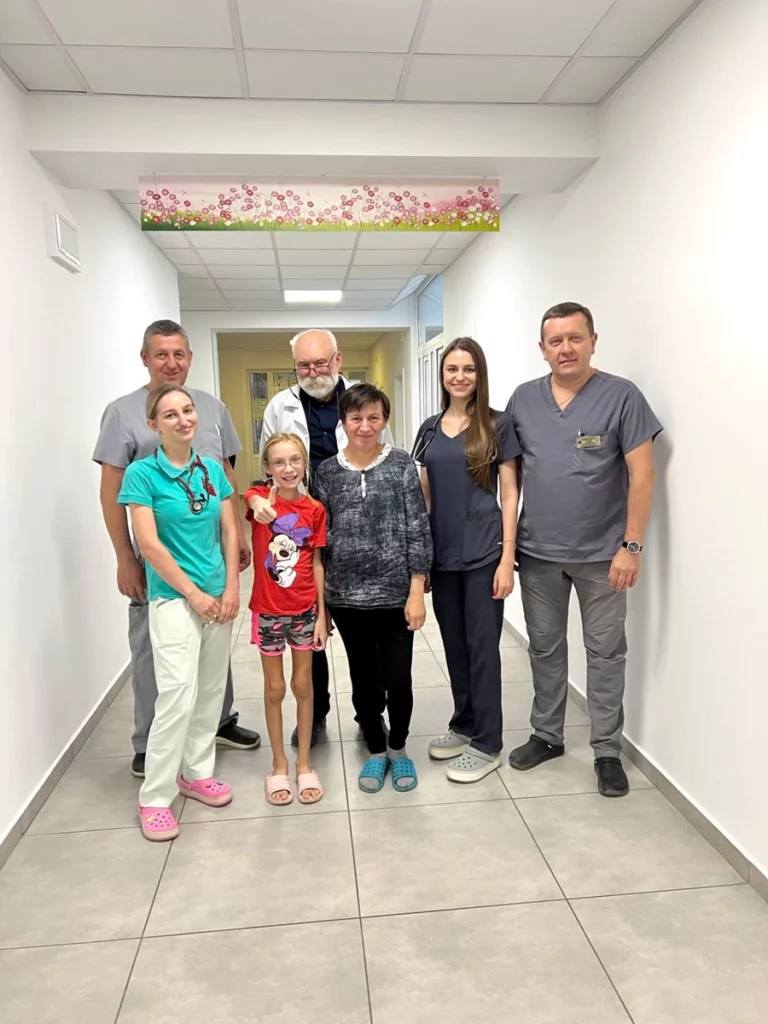Ladd syndrome is an incomplete turn of the intestine.
This pathology is usually diagnosed in early childhood, most often in the first few months of life.
The little Khmelnytsky girl’s treatment history began at birth: the girl suffered from bouts of severe abdominal pain, occasional nausea and vomiting with bile. Her mother said that her daughter had always had a poor appetite and was lagging behind her peers in development. Several times a year, the girl had to be hospitalised due to exacerbated symptoms. After her condition stabilised, the girl felt better, but it didn’t last long – after a while, her ill health returned.
“A very large abdomen and the sound of air in the upper abdomen during percussion – these symptoms were alarming and made us think about a gastrointestinal malformation. We conducted the necessary examinations for the child. And during the ultrasound, Dr Viktor Zhelev saw signs of a “whirlpool sign”, which is typical for malrotation syndrome. The diagnosis was also confirmed by fluoroscopy. Malrotation syndrome is a defect of the intestine, in which it has an incorrect location in the abdominal cavity and therefore cannot function normally. This rare pathology occurs with a frequency of 1 case per 500 newborns, and is much less common among older children,” said Vita Voloshchuk, a gastroenterologist at the Centre and head of the Clinic for Gastroenterology and Eating Disorders.
The Centre’s surgeons performed reconstructive surgery on the girl. The doctors say that the operation was urgent due to the rapid increase in intestinal obstruction.
“During the surgery, we first corrected the abnormal congenital adhesions, and then restored the normal position of the intestine, i.e., placed it in the correct anatomical shape in the abdominal cavity. At the same time, it was necessary to ensure the patency of blood vessels and normal functioning of the intestine itself. This is a difficult and painstaking job for surgeons, but we have successfully coped with it. The child is recovering, feeling well after the intervention, and is gradually returning to normal nutrition,” said paediatric surgeon Andriy Kuzyk.
According to the Centre for Children’s Medicine, the little patient has already been discharged from the hospital. She no longer suffers from abdominal pain, her constant nausea has disappeared, she has regained her appetite, and she has even gained several kilograms of weight. Doctors say that the correct diagnosis and timely surgical care prevented complications and gave the child a chance for a normal, healthy life.

